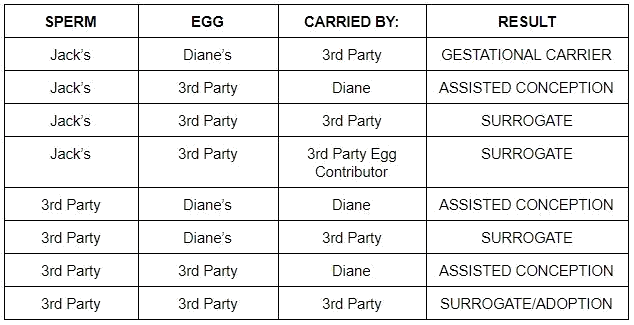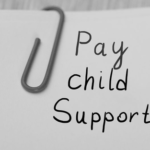We humans have this thing about wanting to create offspring. We have many reasons for it. Some people want to create a family, some have a desire to carry on the family name and values, some may seek to give meaning to their own lives by having a child, and yet some others may procreate simply because of the pressure their society/culture puts on them to keep up the “norm.”
Regardless of the reasons, some people don’t even need to think about it–getting pregnant that is. Yet for many others, getting pregnant is not quite as easy. In fact, according to the U.S. Department of Health and Human Services, out of 100 couples in the United States, about 12 to 13 of them have trouble conceiving a child.
So, if you are one of this 12.5-ish percent of the population and living in North Dakota, what are your options? Well, one of the options available to couples dealing with infertility is adoption, which we have talked about several times before. Much less spoken about (at least by us so far) is the option of using assisted conception, gestational carriers, and surrogates to have a child.
North Dakota defines these terms as follows:
“Assisted conception” means a pregnancy resulting from insemination of an egg of a woman with the sperm of a man by means other than sexual intercourse or by removal and implantation of an embryo after sexual intercourse but does not include pregnancy resulting from the insemination of an egg of a wife using her husband’s sperm.
“Gestational carrier” means an adult woman who enters into an agreement to have an embryo implanted in her and bear the resulting child for intended parents, where the embryo is conceived by using the egg and sperm of the intended parents.
“Surrogate” means an adult woman who enters into an agreement to bear a child conceived through assisted conception for intended parents.
To illustrate how these definitions work in application I have created the table below using a fictitious couple, Jack and Diane.

So what does this mean for my significant other and me, legally? Good question. Answer: It depends on which option you choose from above, that is, if you are able to choose.
In North Dakota, Assisted Conception is the least regulated, statutorily. What I mean is North Dakota recognizes Assisted Conception as legal and does not require a couple to hire an attorney to have hearings and/or obtain Court Orders. Basically, all of the necessary formalities are handled by the hospital.
Gestational Carriers are also recognized as legitimate, as long as the right procedures are followed. In this regard, parties interested in utilizing the Gestational Carrier option must obtain a “Gestational Carrier Agreement.” These Agreements can contain all sorts of provisions, from how the fertilization will occur to how the birth certificate will be handled. And, although not required, it is a good idea to obtain a pre-birth Court Order outlining how things will go at the birth of the child.
That leaves us with the Surrogate option. Surrogacy Agreements are “void” in North Dakota. What this means is that if you have an agreement with a surrogate, and that surrogate changes her mind as to whether she wants to parent the child, the Court does not need to enforce it. Extra caution will be needed if exploring this option.
If you need assistance with navigating the legal aspects of assisted conception in North Dakota please contact us!










